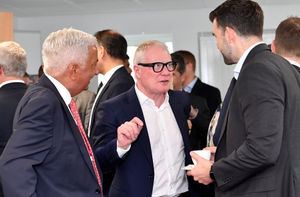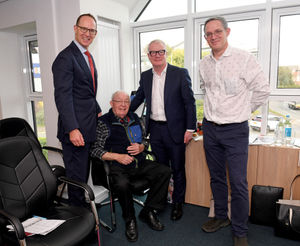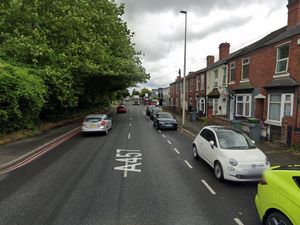'National Express bus operator is getting £4.1 million a month from taxpayer', West Midlands Mayor Richard Parker tells business leaders ahead of shake-up
The West Midlands Combined Authority is paying out more than £4.1 million a month to National Express to stop bus services 'falling over', the region's elected mayor has told Black Country business leaders
Watch more of our videos on ShotsTV.com
and on Freeview 262 or Freely 565
Richard Parker told a business lunch meeting organised by the Richardson group that getting his proposed rail-style franchising system in place as soon as possible would be best for everybody.
He told guests at the Richardson headquarters in Oldbury that in the next three months Andy Burnham, the regional mayor for Greater Manchester, to explain to West Midland council leaders how a similar system was working in his region.
"We [West Midlands Combined Authority] currently spend £50 million every year bankrolling the National Express West Midlands bus system just to stop if falling over, I don't think they want to run that service either, so the sooner we get to franchising I think the better it will be for everyone."
In the summer Mr Parker commissioned independent consultancy firm Arup to carry our a review of all transport projects in the region, which is expected to be published next month.
He said he did not yet know what the report would find.

"On the transport system, I inherited a mess," he said. "A whole series of commitments that would never be delivered, could never be funded, in some cases there was never any funding for them.
"I commissioned this report so that going forward we know what funding is where, what's going to be delivered, and what isn't."
Mr Parker said shortly after taking office he faced a 'day of reckoning' when he discovered the state of many transport projects.
"It shouldn't have taken a mayoral election for some of those things to be in the public domain," he said.
"Many of the transport projects in the region were going to cost a lot more than the money that was in the budget, and were going to be further delayed.
"And also I came across projects where commitments had been made about them, when either there was little money there to fund them, or those projects hadn't even gone to the first stage of a business case."

He cited the Camp Hill railway line through south Birmingham as an example of a scheme which had cost much more than had been expected.
"Not only is that project going to cost and extra £40-£50 million above what was announced previously, but was also going to be delayed an extra 15 months or so in its delivery time," he said.
"That's just one example one project that I have inherited, that I had to make announcements on, on positions that were probably known about before, but hadn't been disclosed.
"That's why I asked for this independent review to understand what decisions were made before, what was known about before, and what we need to do differently in the future to give everyone more certainty and clarity over both delivery timescales, and the cost."





